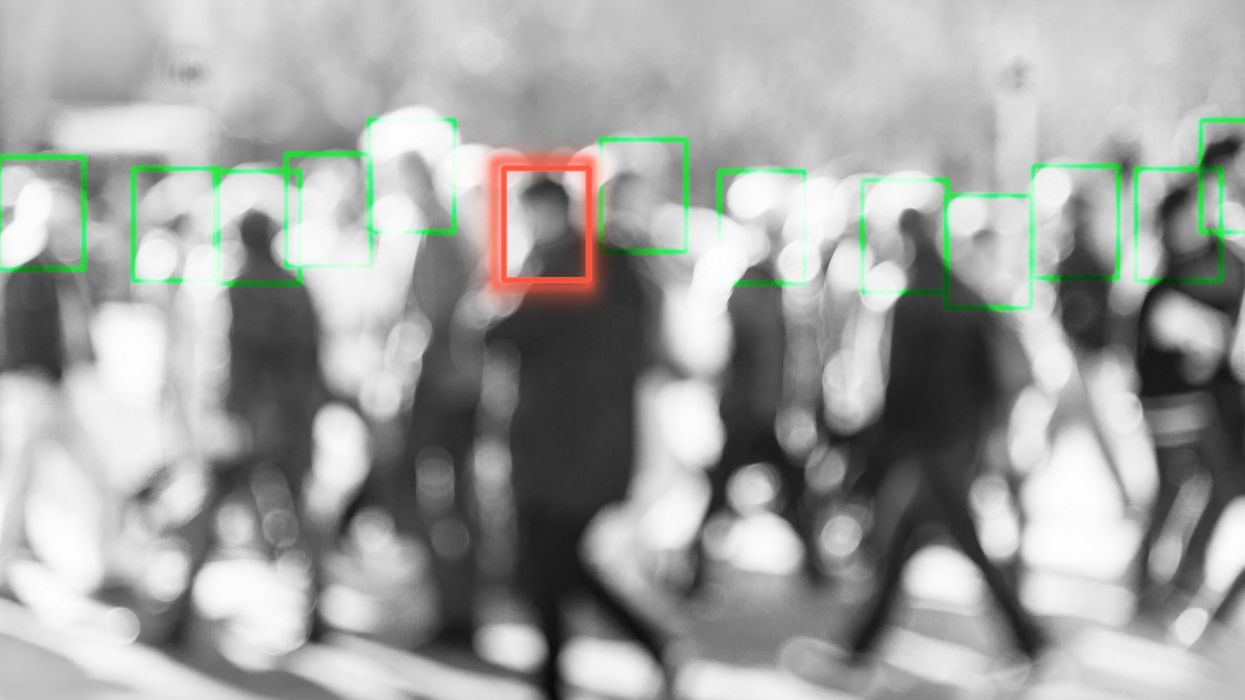
andreusK via iStock/Getty Images

The machines aren’t the danger. The people training them are — and voters are finally drawing a red line around constitutional limits.
Once the domain of science fiction, artificial intelligence now shapes the foundations of modern life. It governs how we access information, interact with institutions, and connect with one another. No longer just a tool, AI is becoming infrastructure — an embedded force with the potential to either safeguard our liberty or quietly dismantle it.
In a deeply divided political climate, it is rare to find an issue that unites Americans across ideological lines. But when it comes to AI, something extraordinary is happening: Americans agree that these systems must be designed to protect our most basic rights.
Voters from both parties recognize that AI must be built to reflect the values that make us free.
A new Rasmussen poll reveals that 77% of likely voters, including 80% of Republicans and 77% of Democrats, support laws that would require developers and tech companies to design AI systems to uphold constitutional rights such as freedom of speech and freedom of religious expression. Such a consensus is practically unheard of in today’s political climate.
The same poll found that more than 70% of voters are concerned about the growing role of AI in our economy and society. And that concern isn’t limited to any one party: 74% of Democrats and 70% of Republicans say they are “very” or “somewhat concerned.”
Americans are watching the AI revolution unfold, and they’re sending a clear message: If we’re going to let these systems shape our future, they must be governed by the same principles that have preserved freedom for generations.
That concern is more than hypothetical. We are already seeing the consequences of AI systems that reflect narrow ideological agendas rather than broad constitutional values.
Google’s Gemini AI made headlines last year when it produced historically inaccurate images of black Founding Fathers and Asian Nazi soldiers. This wasn’t a technical glitch. It was the direct result of ideological programming that prioritized “diversity” over truth.
In China, the DeepSeek AI model was trained to avoid any criticism of the Chinese Communist Party. Ask it about the Tiananmen Square massacre, and it refuses to give you an answer at all. When models are trained to serve power rather than seek truth, they become tools of suppression.
If left unchecked, agenda-driven AI systems in the United States could soon shape what news we see, what content is amplified — or buried — on social media, and what opinions are allowed in public discourse, thereby conforming society to its pre-programmed ideals.
Biased AI systems could even influence public policy debates by skewing public opinion toward "solutions" that optimize for social or environmental justice goals. These constitutionally unaligned AI systems may quietly reshape society with complete disregard for liberty, consent, and due process.
Some conservatives bristle at the word “regulation,” and rightly so. But what we're talking about here isn’t micromanagement or bureaucratic control. It’s the same kind of constraint our Founders placed on government power: constitutional guardrails that prevent abuse and preserve freedom.
When AI is unbound by those principles, it doesn’t become neutral — it becomes ideological. It doesn’t protect liberty; it calculates outcomes. And in doing so, it can rationalize censorship, coercion, and discrimination, all in the name of “progress.”
RELATED: Eyes everywhere: The AI surveillance state looms

This is why Americans are right to demand action now. The window for shaping AI's trajectory is still open, but it won’t remain open forever. As these systems become more advanced and more embedded in our institutions, retrofitting them to respect liberty will become harder, not easier.
We are living through a rare moment of political clarity. Voters from both parties recognize that AI must be built to reflect the values that make us free. They want systems to protect speech, not suppress it. They want AI to respect human conscience, not override it. They want AI to serve the people, not manage them.
This is not a partisan issue. It is a moral one. And it’s an opportunity we must seize before the future is decided for us.
AI doesn’t have to be our master. But it must be taught to serve what makes us free.
Donald Kendal